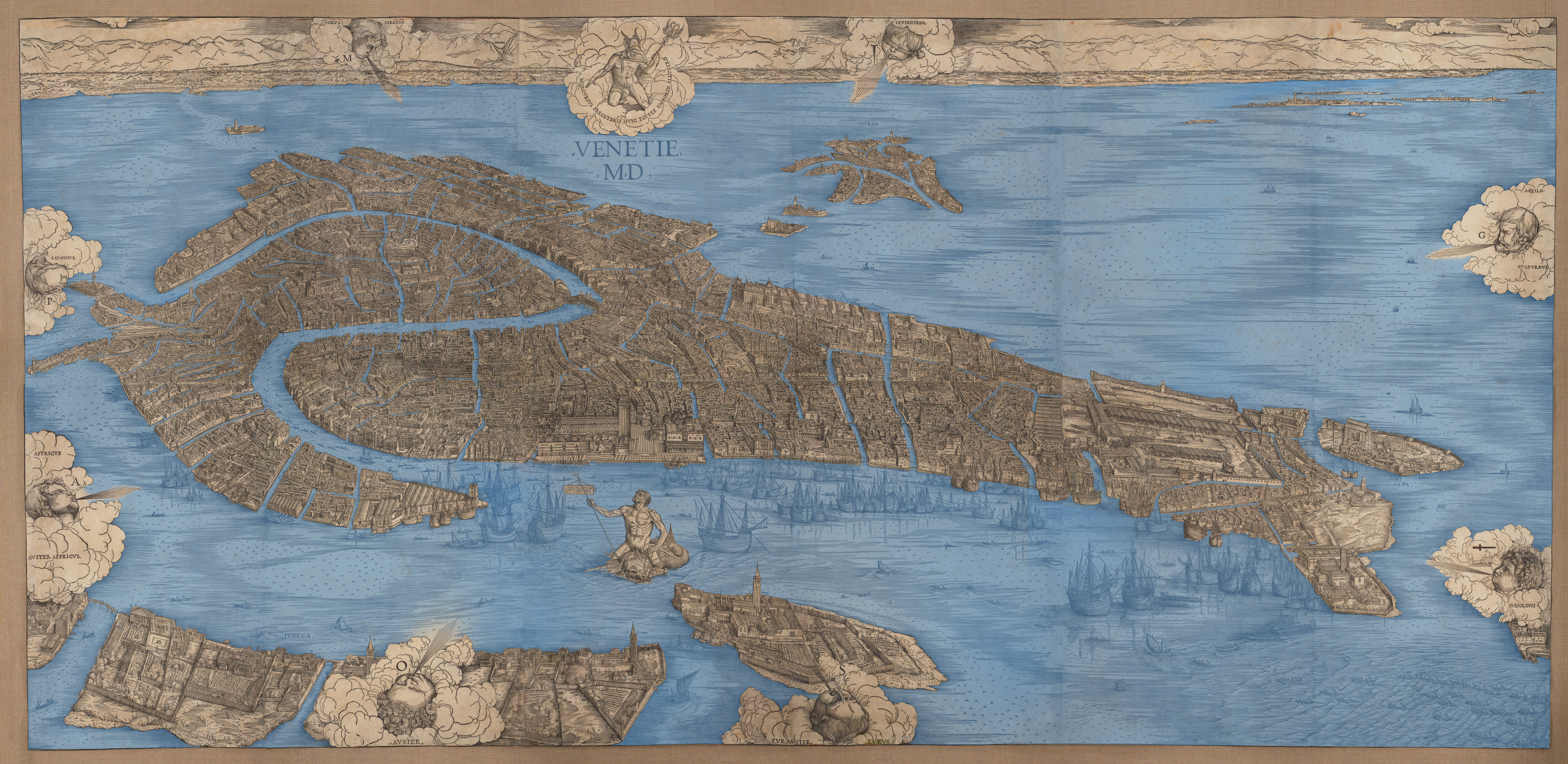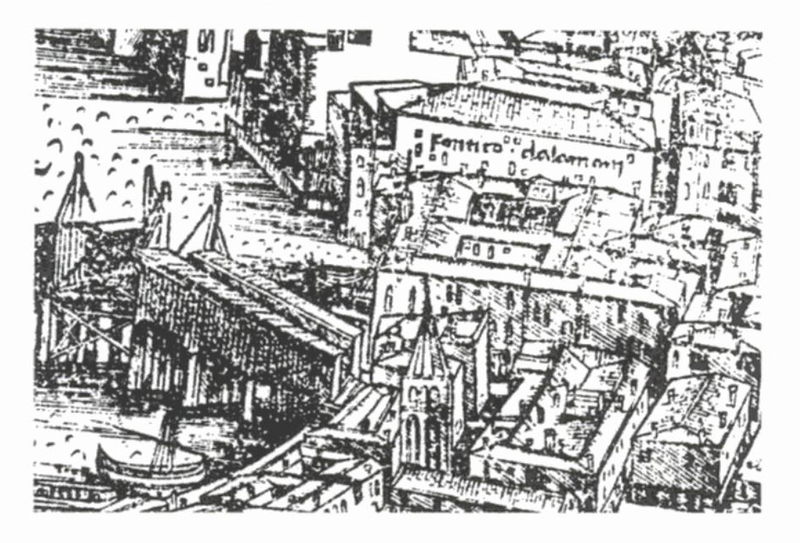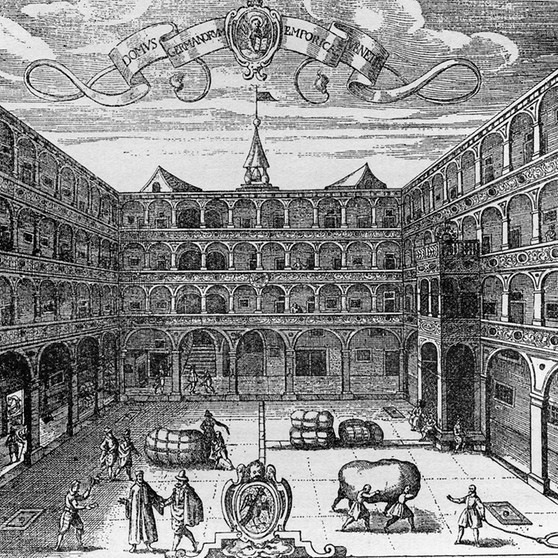Historical Context
Click here to view an interactive map of The Fondaco dei Tedeschi.
Venice was a natural gateway to the Adriatic and Mediterranean for travelers and traders from the German empire. The German community of merchants hailed from a variety of cities, such as Ausburg, Nuremberg, and Regensburg; they were required to stay at the Fondaco dei Tedeschi at Rialto, established in the early thirteenth century. Despite its destruction by fire in 1505, the fondaco was rebuilt and business continued. Like the architecture in historical European cities, which borrowed architectural elements and applied them in their building functions, the fondaco often reflected the particular benefits and interests of Venetian merchants and administrators whose power allowed them the opportunity to create controlled environments and networks of warehouses, lodging houses, and offices.[1]
The historical foundation of the fondaco was tied to European culture, but also to Arabic and Muslim cultures. The European fondachi shared common commercial and fiscal interests, in contrast to the Arabic funduqs, whose focus pertained to storage, money and taxes. The fondachi first appeared in the Islamic world, and eventually worked its way over to European cities due to expanded trade. The Fondaco dei Tedeschi was adapted from the Muslim into the Christian context. It was influenced by its counterparts in Alexandria and other Arab states with regard to its architecture, administration, and regulations. Most Italian city-states had some of their own citizens in other towns and countries, and they also welcomed people from other towns and countries, making it common for them to have specific buildings for the use of various foreign merchant communities.
Most Germans traveling through Venice were merchants who were treated differently than the marginalized group of German who resided long-term in Venice, and did not attract the focus of the Venetian government's attention. Olivia Remie Constable believes that these small groups of German residents were of little concern to those in power in Venice because tthey had very little income and tax potential. The focus and attention were placed upon the merchants because of the revenue they were bringing to Venice.
[1] Olivia Remie Constable, Housing the Stranger in the Mediterranean World: Lodging, Trade, and Travel in Late Antiquity and the Middle Ages (Cambridge: Cambridge University Press, 2009).
See also Dovey, Kim. Framing Places: Mediating power in built form. Routledge Publications, 2008. pg 11-17


